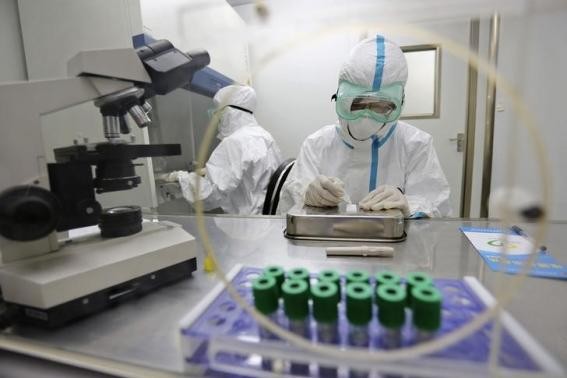The news that China's first high-security biosafety laboratory was officially completed in Hubei Province's Wuhan was published on Saturday.
The facility, which was initially slated for a Dec. 2014 opening, will focus upon the research of four pathogens (P4), which are the most virulent viruses that present a high risk of aerosol-transmitted person-to-person infections. Furthermore, Chinese researchers will also conduct research on the deadly Ebola virus in the new lab.
The facility, started in July 2011, is the outcome of a three-way partnership between the French bio-industrial firm Institut Merieux, the Chinese Academy of Sciences (CAS) and the Wuhan municipal government. It was originally conceived after the SARS (Severe Acute Respiratory Syndrome) outbreak in 2003.
In an October interview with the Associated Press news outlet, Institut Merieux president Alain Merieux was enthusiastic about the timing of the laboratory's opening, describing the historical time period as "a crucial moment" in which both China and France "are all working side by side on Ebola." Medical workers from both nations were present in the affected West African countries at the time.
By the end of last year, the World Health Organization reported that the world's worst-ever Ebola epidemic continued to ravage the West African nations of Sierra Leone and Liberia, after more than 50 percent of the 6,500 infected people had been killed by the virus.
The Wuhan P4 laboratory means that China will sit alongside a small number of developed countries in which similar facilities exist.
CAS president Bai Chunli told the Global Times that, in addition to undertaking invaluable research on the most virulent pathogens, the lab will be a key component of China's public health system, as it "will play crucial role in enhancing the country's ability to prevent and control new epidemics as well as to develop related vaccines."



























